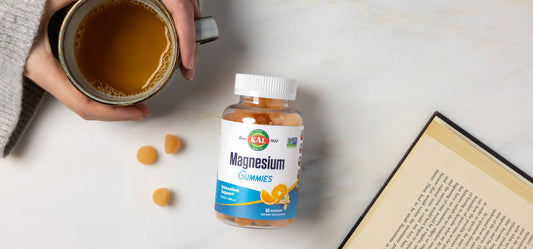When you think of yeast you may think of bread or beer. Nutritional yeast is different because it is an inactivated version of the yeast that is used in baking or brewing. Nutritional yeast is a vegan protein source that contains important nutrients such as amino acids, minerals, and B vitamins.1 It is often used to add flavor to foods, but it is primarily used to support health on a variety of levels.
The Health Benefits of Nutritional Yeast
Protein is vital to health as it is a key structural and functional component of every cell in the body and is especially important for the development of various metabolic processes.2 And yet, research shows that eating plant proteins may help better support overall health more so than animal proteins.3
Because nutritional yeast is such a potent protein source, it is often used by vegans and vegetarians; however, other people can benefit from it including athletes, the elderly, and even children.1
Research shows that nutritional yeast may help support immune and gut health.4 Beta-glucans are fibers found in nutritional yeast that have been shown to support heart health and normal cholesterol levels.5
How to Use Nutritional Yeast
Nutritional yeast comes in delicate flakes that can be easily sprinkled on foods like popcorn, pasta, salads, stews, soups, and casseroles. It can also be added to juices and smoothies. The typical daily amount is 1.5 rounded tablespoons. Nutritional yeast can last a long time if it is stored in a cool, dark place, and sealed tightly to keep the moisture out.
When shopping for a nutritional yeast product, look for a high-quality brand with yeast primarily grown from molasses to provide that delicious nutty flavor with no bitter aftertaste. Even though nutritional yeast contains many key nutrients, you may want to consider choosing fortified nutritional yeast that contains a full spectrum of naturally occurring amino acids and vitamin B12 for extra health support. Vitamin B12 is important because it helps support cellular energy and nervous system health, as well as healthy red blood cell production.6
Is Nutritional Yeast for You?
If you are looking for an easy, convenient way to support your diet, try including nutritional yeast to your daily routine. In addition to supporting your health in many ways, it’s a tasty contribution that will keep you going back for more!
Ready to indulge in the delicious goodness of nutritional yeast flakes? Try this Vegan Pumpkin Mac and Cheese recipe. For more tips on nutrition, staying healthy and motherhood follow us on Facebook @kalvits and Instagram at @kalvitamins!
References
- Jach ME, Serefko A. Chapter 9 — nutritional yeast biomass: characterization and application. Diet, Microbiome and Health. 2018:237-270. https://www.sciencedirect.com/science/article/abs/pii/B9780128114407000090
- Jach ME, Serefko A, Ziaja M, Kieliszek M. Yeast Protein as an Easily Accessible Food Source. Metabolites. 2022;12(1):63. https://www.ncbi.nlm.nih.gov/pmc/articles/PMC8780597/?report=reader
- Naghshi S, Sadeghi O, Willett WC, Esmaillzadeh A. Dietary intake of total, animal, and plant proteins and risk of all cause, cardiovascular and cancer mortality: a systematic review and dose-response meta-analysis of prospective cohort studies. BMJ. 2020;370. https://www.bmj.com/content/370/bmj.m2412
- Moslehi-Jenabian S, Pedersen LL, Jespersen L. Beneficial effects of probiotic and food borne yeasts on human health. Nutrients. 2010;2(4):449-473. https://www.ncbi.nlm.nih.gov/pmc/articles/PMC3257658/?report=reader
- Bashir KMI, Choi JS. Clinical and Physiological Perspectives of β-Glucans: The Past, Present, and Future. Int J Mol Sci. 2017;18(9):1906. https://www.ncbi.nlm.nih.gov/pmc/articles/PMC5618555/?report=reader
- National Institutes of Health Office of Dietary Supplements. Vitamin B12: fact sheet for consumers. 2021;July 7. https://ods.od.nih.gov/factsheets/VitaminB12-Consumer/




